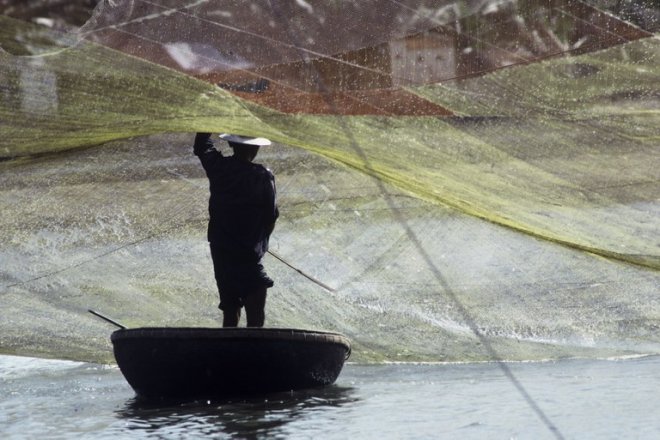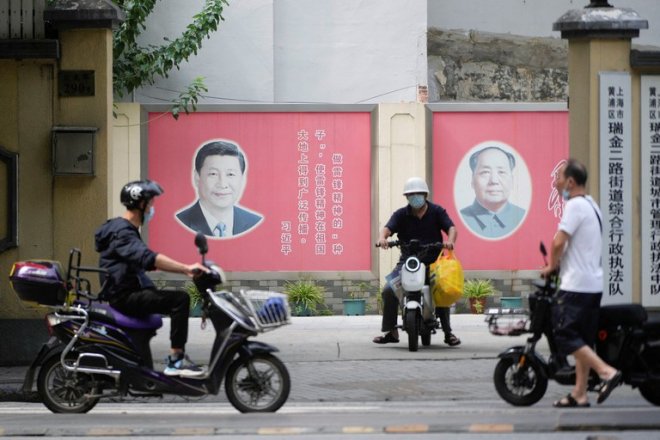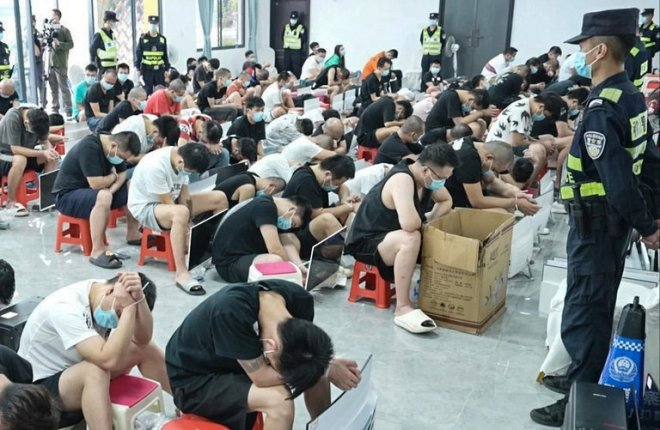In North Korea, ‘Judas’ is nickname for informer and betrayer
‘Judas’ has become a scornful nickname for informers in North Korea.
For example, when a girl confided in her friend during the COVID-19 pandemic that she planned to escape North Korea once the border with China reopened, she was brought before authorities and punished.
Residents began calling the friend who sold her out “a modern-day Judas,” a woman from Kimjongsuk county, in the northern province of Ryanggang, told Radio Free Asia on condition of anonymity for security reasons.
“After this incident, whenever the informant passes by, other people in the neighborhood turn their backs on him and curse him as Judas,” the woman said. “Authorities who encourage the informants are called Judas as well.”
The reference to the disciple who betrayed Jesus in the New Testament might be surprising given that Christianity has been illegal in the country for nearly 120 years.
It is not a new term because underground Christians – who are persecuted in North Korea – are familiar with it. And Christianity does have roots in the country. Pyongyang was once such a bastion of Christians that it was called “Jerusalem of the East.”
Korea was one of the only places in East Asia where Christianity had staying power after it was introduced in the 17th century. But came to an end once the peninsula fell to Japanese rule in 1905 and Shinto became the state religion, pushing believers underground.
At the end of World War II in 1945, Christian missionaries returned to Korea, but only in the south, as the Soviet-occupied north forbade religion. Once North Korea was officially established in 1948, Christianity and other religions were completely outlawed, and the church remained underground.
Efforts to stamp out Christianity
But the nickname does appear to be used more widely these days.
The fact that people are still aware of the story of Judas, who betrayed Jesus to the Romans for 30 pieces of silver, indicates that despite North Korea’s best efforts to stamp out Christianity, the religion still maintains a presence there.
“People who lack loyalty or who stab their friends in the back are cursed as ‘Judas,’” a man living in Pyongsong, South Pyongan province, north of Pyongyang, told RFA on condition of anonymity to speak freely.
“The five-household propagandist, who reports the movements of people and even trivial words to the police, is also called ‘Judas’ by his peers,” he said.
The five-household watch is a sophisticated surveillance system in which paid informants, called propagandists, are tasked with monitoring five households in their neighborhoods. Five-household propagandists are enthusiastic Party members selected from factories and schools for exhibiting traits of loyalty.
“As the public sentiment has worsened due to the prolonged COVID-19 crisis, the authorities are focusing on monitoring the residents by mobilizing the informants,” the South Pyongan resident said. “As if that was not enough, the authorities secretly planted more informants in the neighborhoods.”
“In response, the residents are criticizing the authorities for creating distrust among the residents, telling them not to trust anyone, because they do not know who could be ‘Judas.’”
North Korean authorities have tried hard to eliminate Christianity from the country, but believers are still there – though it’s impossible to know how many.
The international Christian missionary organization Open Doors, citing a trusted North Korean source, described how in 2022 dozens of members of an underground church were discovered and executed, and more than 100 of their family members were arrested and sent to concentration camps.
Translated by Claire Shinyoung Oh Lee. Written in English by Eugene Whong. Edited by Malcolm Foster.
[圖擷取自網路,如有疑問請私訊]
For example, when a girl confided in her friend during the COVID-19 pandemic that she planned to escape North Korea once the border with China reopened, she was brought before authorities and punished.
Residents began calling the friend who sold her out “a modern-day Judas,” a woman from Kimjongsuk county, in the northern province of Ryanggang, told Radio Free Asia on condition of anonymity for security reasons.
“After this incident, whenever the informant passes by, other people in the neighborhood turn their backs on him and curse him as Judas,” the woman said. “Authorities who encourage the informants are called Judas as well.”
The reference to the disciple who betrayed Jesus in the New Testament might be surprising given that Christianity has been illegal in the country for nearly 120 years.
It is not a new term because underground Christians – who are persecuted in North Korea – are familiar with it. And Christianity does have roots in the country. Pyongyang was once such a bastion of Christians that it was called “Jerusalem of the East.”
Korea was one of the only places in East Asia where Christianity had staying power after it was introduced in the 17th century. But came to an end once the peninsula fell to Japanese rule in 1905 and Shinto became the state religion, pushing believers underground.
At the end of World War II in 1945, Christian missionaries returned to Korea, but only in the south, as the Soviet-occupied north forbade religion. Once North Korea was officially established in 1948, Christianity and other religions were completely outlawed, and the church remained underground.
Efforts to stamp out Christianity
But the nickname does appear to be used more widely these days.
The fact that people are still aware of the story of Judas, who betrayed Jesus to the Romans for 30 pieces of silver, indicates that despite North Korea’s best efforts to stamp out Christianity, the religion still maintains a presence there.
“People who lack loyalty or who stab their friends in the back are cursed as ‘Judas,’” a man living in Pyongsong, South Pyongan province, north of Pyongyang, told RFA on condition of anonymity to speak freely.
“The five-household propagandist, who reports the movements of people and even trivial words to the police, is also called ‘Judas’ by his peers,” he said.
The five-household watch is a sophisticated surveillance system in which paid informants, called propagandists, are tasked with monitoring five households in their neighborhoods. Five-household propagandists are enthusiastic Party members selected from factories and schools for exhibiting traits of loyalty.
“As the public sentiment has worsened due to the prolonged COVID-19 crisis, the authorities are focusing on monitoring the residents by mobilizing the informants,” the South Pyongan resident said. “As if that was not enough, the authorities secretly planted more informants in the neighborhoods.”
“In response, the residents are criticizing the authorities for creating distrust among the residents, telling them not to trust anyone, because they do not know who could be ‘Judas.’”
North Korean authorities have tried hard to eliminate Christianity from the country, but believers are still there – though it’s impossible to know how many.
The international Christian missionary organization Open Doors, citing a trusted North Korean source, described how in 2022 dozens of members of an underground church were discovered and executed, and more than 100 of their family members were arrested and sent to concentration camps.
Translated by Claire Shinyoung Oh Lee. Written in English by Eugene Whong. Edited by Malcolm Foster.
[圖擷取自網路,如有疑問請私訊]
|
本篇 |
不想錯過? 請追蹤FB專頁! |
| 喜歡這篇嗎?快分享吧! |
相關文章
AsianNewsCast




















